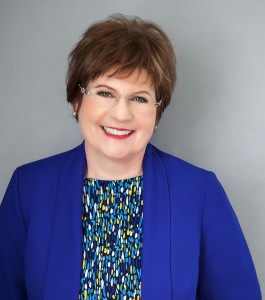
 Emily Iland’s autism quest started like many mothers’ struggles: at home, with her oldest son, Tom.
Emily Iland’s autism quest started like many mothers’ struggles: at home, with her oldest son, Tom.
A mother of three who had just moved to Santa Clarita following her husband’s job transfer, Iland found herself fighting for 9-year-old Tom, who had stopped speaking for about three months when he was a preschooler. She fought to get him the special education help he needed as he entered a new school district in Santa Clarita, as she and her husband faced new and daunting parenting challenges.
“What I discovered is you’ve got to advocate for your kid, or they’re not going to get what they need,” said Iland ’07 (M.A., Special Education), ’09 (Post-Master’s Certificate, Education Therapy). “So, I educated myself to become my son’s advocate — and then I started helping other people. I started helping people I’d never met before and I noticed that not everyone was getting the help they needed.
“You fight on the inside: You have to fight with yourself, within your own family and on the outside too,” she said of parenting a child with autism. “It’s overcoming a struggle. It’s a challenge that you have to step up to, or else. I was a shy person. But I realized that I needed to be educated about autism, about treatments and education so I could always base everything on facts — as a mother and as an advocate. Because you can’t argue with facts. Facts help people get along.”
Inspired and driven, Iland enrolled in the master’s program in special education at CSUN’s Michael D. Eisner College of Education. As president of the Autism Society of Los Angeles and a professional advocate — helping hundreds of families in Santa Clarita through the special education process in schools — she came to CSUN armed with questions and concerns.
“I felt like more education would help me address issues like the underrepresentation of Latino families in the disability services community,” said Iland, who had double majored in Spanish and political science as an undergraduate at Marquette University in Wisconsin. “I had a lot of Latino friends, and I saw that I was able to get my kid what he needed, but there were these Latino families not getting what they needed. It was a question of equity.”
At CSUN, she wrote her thesis on Latina mothers who have children with autism.
“I asked the moms in my study, ‘What’s getting in your way? Why can’t you get what your kids need?’ Here [at CSUN], I’ve had a wonderful environment and support to investigate those questions. You have to know what the problem is before you can solve it.”
She found that the language barrier was not the Latina mothers’ primary obstacle: It was an information gap.
“It was some cultural things, as well — feeling ashamed of your child, not having family support. Not knowing where to go or how to navigate the system. And language came after that,” she said.
In 2010, the college asked Iland to return to campus to teach, after the state passed a law requiring special educators who had not had training on autism as part of their credential to take nine units of classes. Now, Iland is hard at work off campus and still focused on Latino families whose children have autism. She’s part of a team implementing a two-city study to test the effectiveness of a new education program, in which promotoras — specially trained Latina mothers of children with autism — bring in-home parent education to those with newly diagnosed children.
Iland is also well-known for her work around autism, safety and police, including BE SAFE the Movie. Her most exciting new project, though, is a book she’s writing with son Tom, now 33. Tom earned a bachelor’s degree in accounting from CSUN’s David Nazarian College of Business and Economics, at the same time his mom was earning her master’s.
“Tom and I were here at college together. I was able to see his struggles as a young adult, trying to become more independent, finding his place in the world,” she said. “Our book is called, Come to Life: Navigating the Transition to Adulthood. It’s [about] taking control, taking responsibility, even if you have a disability. Even people who aren’t able to be super independent should have choice in their life and should have a voice.
“We’re often so focused on academics, we’re not helping young people come to terms with their own identity — to accept their strengths and their challenges.”